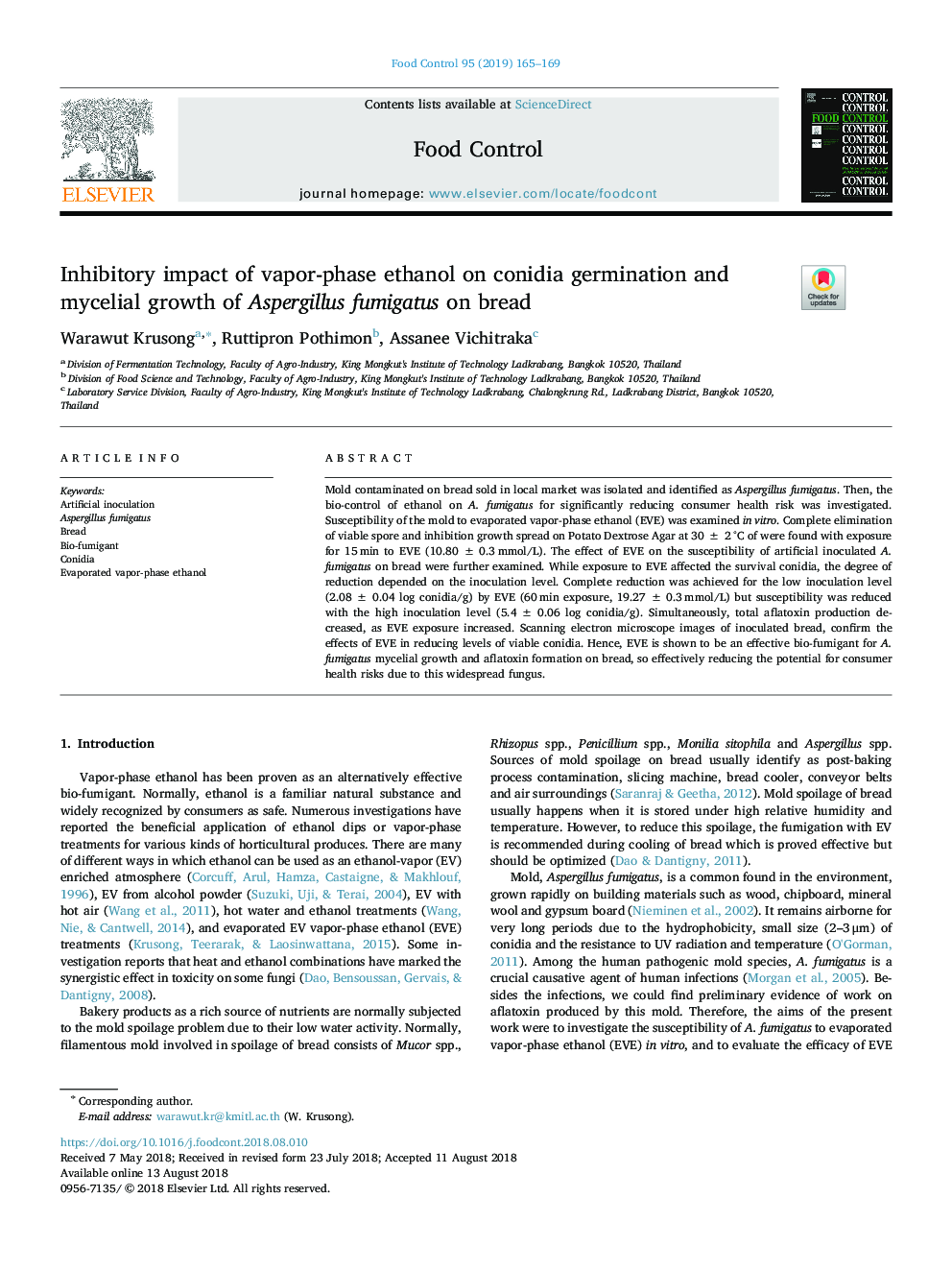| Article ID | Journal | Published Year | Pages | File Type |
|---|---|---|---|---|
| 8887654 | Food Control | 2019 | 5 Pages |
Abstract
Mold contaminated on bread sold in local market was isolated and identified as Aspergillus fumigatus. Then, the bio-control of ethanol on A. fumigatus for significantly reducing consumer health risk was investigated. Susceptibility of the mold to evaporated vapor-phase ethanol (EVE) was examined in vitro. Complete elimination of viable spore and inhibition growth spread on Potato Dextrose Agar at 30â¯Â±â¯2â¯Â°C of were found with exposure for 15â¯min to EVE (10.80â¯Â±â¯0.3â¯mmol/L). The effect of EVE on the susceptibility of artificial inoculated A. fumigatus on bread were further examined. While exposure to EVE affected the survival conidia, the degree of reduction depended on the inoculation level. Complete reduction was achieved for the low inoculation level (2.08â¯Â±â¯0.04 log conidia/g) by EVE (60â¯min exposure, 19.27â¯Â±â¯0.3â¯mmol/L) but susceptibility was reduced with the high inoculation level (5.4â¯Â±â¯0.06 log conidia/g). Simultaneously, total aflatoxin production decreased, as EVE exposure increased. Scanning electron microscope images of inoculated bread, confirm the effects of EVE in reducing levels of viable conidia. Hence, EVE is shown to be an effective bio-fumigant for A. fumigatus mycelial growth and aflatoxin formation on bread, so effectively reducing the potential for consumer health risks due to this widespread fungus.
Related Topics
Life Sciences
Agricultural and Biological Sciences
Food Science
Authors
Warawut Krusong, Ruttipron Pothimon, Assanee Vichitraka,
